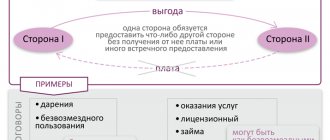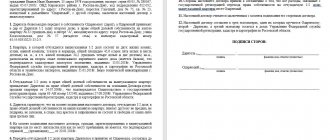My story is determined by life circumstances - I have an elderly, lonely relative left in my care, this is my aunt, my father’s sister. She was a widow, she had no children, my mother and I were her closest relatives. My aunt was entitled to a free social worker - such workers come twice a week, bring food (we left money for them weekly), take out the trash, check whether everything is fine with their ward’s health - they don’t examine, but look at the appearance, the answers. We had my aunt’s social worker’s mobile phone, we were in touch for many years, and when my aunt had a stroke, it was the social worker who called the doctor the fastest - it happened on the day she arrived.
Once a week I visited my aunt, alone or with my mother. We washed the apartment, refrigerator, bathroom and toilet, brought simple universal food (we cooked it at home and brought huge packages with us - mashed potatoes, steamed cutlets) so that my aunt would have less contact with the gas stove and heat it more in the microwave. We washed my aunt, I cut her nails and hair, we took things to the laundry and changed them into new clothes, I made the bed. This went on for the last ten years - my aunt became ill in health and did not go outside.
Accordingly, monthly expenses for an aunt were equivalent to monthly expenses for a full-fledged family member - food, household chemicals, clothing, utility bills, etc., this could be from 30,000 to 50,000 rubles per month. We kept my aunt’s pension, and I paid for her care all these years from my salary.
About a year before her departure, we began to notice changes in her psyche - memory lapses, she sometimes called us by names that were not ours, abruptly jumped from one topic to another: dementia was developing. We began to think about bringing my aunt to us - under constant care and control.
My aunt lived in an area almost entirely consisting of Khrushchev-era apartment buildings, where elderly residents lived, mostly old men and women. We constantly heard about cases of fraud, when people come to them to lure money for “magical” household or medical devices, we understood that the apartment market is fragile and one fine day a person will come to my aunt who will “discuss” the transfer with her rights to an apartment.
To protect her and her home legally, we chose the option of a lifetime annuity agreement. It involves transferring to you the right to property (here - real estate, a two-room apartment in a five-story building) after the death of the person to whom you provide rent for life.
The aunt agreed, we talked to her and explained how this decision would allow us to record what we were already doing, protect her and give her guarantees for the future.
We immediately involved a notary and a lawyer in our matter, calling them to our home. It is already difficult to say how much it cost at that time, but these were the prices in the market and the range of services included drawing up an agreement, visiting a relative, certifying signatures and support later, issuing all the necessary documents.
The contract spelled out all the points that I had already fulfilled for many years - the amount of 30,000 was indicated - this is the monthly minimum that should have been fulfilled for care (under the contract you collect checks), some contracts stipulate the conditions of burial and taking care of it after the person leaves. In fact, the amount spent on care was more, and this was in the order of things - because we were talking about a family member.
The issue with the subsequent funeral in our case was resolved, because for my aunt there was a place in the cemetery where her mother (my grandmother) was buried.
The aunt passed away shortly after the death of her brother and dad, and the timely conclusion of the agreement made it possible to avoid worries that could have been associated with receiving an inheritance.
I can say that despite the fact that my situation seems to be quite obvious and natural, there is something in it that is important for everyone in the field of life annuity to consider:
1. It's a responsibility
, first of all, for human health, for his mental and emotional state. Special books are not needed, but a healthy and stable psyche is definitely needed. You will be caring for an old man with a rigid psyche and possibly deteriorating health. You must be emotionally mature and have incredible emotional intelligence. You must be above the clouds of reason of the ward, not be offended by his whims and bad character. You must show tremendous empathy, love and patience and maintain them throughout your journey. These are the most important things.
2. You must have time to care for your ward.
This may be a daily concern or a whole day on the weekend - but completely from morning to evening, and this is many months and weeks over many years. This type of work does not have vacations or time off. And it's physically and emotionally difficult. It is difficult to wash the light but clumsy body of an old man or woman and to clean the apartment; you must not be squeamish, friendly and ready for the role of a nurse.
3. You should know that there are many more advantages to this care.
than just future material gain. You improve another person's quality of life, making them healthier and happier.
4. You must be a mature person
to decide to do this when the circumstances are like this. It is important to understand that by doing so you will protect your ward, and not go to the extreme of “what people around will say.” To do this, however, as I wrote earlier, you need to be an emotional adult.
What is a life annuity
Life annuity
- this is a type of transaction in which the apartment owner (rent recipient) undertakes to transfer his housing in exchange for regular payments.
If the homeowner requires additional services—for example, care, grocery shopping, or help with housework—then this type of annuity is called a lifelong dependent annuity
.
The term of such an agreement is until the end of the life of the apartment owner. And if the annuity agreement was concluded with several recipients - for example, spouses - then until the end of the life of the last recipient.
Property can be transferred free of charge
(that is, exclusively for rent payments) or
for a fee
- a one-time payment at the time of concluding the contract, which will be supplemented with rental payments in the future, notes the managing partner of the Moscow law office "Shcheglov and Partners", lawyer Yulia Lyalutskaya.
The amount of rental payments is established by the contract. If the apartment is transferred free of charge, then payments cannot be lower than the subsistence level, which is established in the region where the rent recipient lives. If the cost of living increases, payments are indexed.
According to Lyalutskaya, the transfer of ownership of real estate occurs immediately after the conclusion of a rent agreement. That is, the rent payer will legally become the owner of the apartment. But the property will be encumbered - it cannot be sold or rented out without the consent of the rent recipient, who will also retain the right to live in the apartment.
You need to keep in mind: after the conclusion of the contract, the rent payer - as the owner of the property - will need to pay utility bills and taxes, despite the fact that he will not actually live in the apartment.
Form of permanent annuity agreement
An agreement on permanent rent, regardless of the type and value of the property transferred to the payer, must be concluded in writing and notarized. If such an agreement provides for real estate as the subject of permanent rent, then it is subject to state registration. If the requirement to notarize a permanent annuity agreement is violated, such an agreement will be considered void, that is, invalid from the very beginning. If an agreement on the transfer of real estate for rent is certified by a notary, but does not go through the state registration procedure, then it will only be considered unconcluded, because the law does not make the registration of the agreement dependent on its invalidity.
How to draw up a contract correctly
According to lawyer Susana Kirakosyan, a life annuity agreement is subject to mandatory notarization. And the transfer of ownership of the apartment - state registration. If the apartment is transferred free of charge, this will be a gift agreement, and if an additional payment is made for the apartment, then it will be a purchase and sale agreement.
Before concluding an agreement, the rent payer should prepare, advises assistant lawyer of the Union of Lawyers of the Moscow Arbat Bar Association, Alexander Ushakov.
- Meet the annuity recipient.
The lawyer recommends studying the composition of the recipient’s family and his potential heirs. To do this, you can get archival and expanded extracts from the house register (this can be done at the MFC, housing cooperative or HOA), see who and when was registered in the rent recipient’s apartment and where they were discharged. “This document will give an idea of the composition of the family, but only on the condition that they were registered in the apartment of the rent recipient,” notes Ushakov. In addition, the lawyer recommends looking at photo albums and talking with the potential annuitant and his neighbors.
- Check the psycho-emotional state of the future annuity recipient.
It is best if the recipient undergoes a medical and psychological examination at an accredited healthcare institution, PND and ND at the place of residence, says Alexander Ushakov. An additional guarantee is that the annuitant must have a valid driver's license.
- Provide the notary with a certificate when concluding a contract
from healthcare institutions about the lack of registration with the PND and ND. “It is advisable to register only in a notary’s office with an entry in the register of notarial actions,” the lawyer advises.
There are no standard annuity contracts; they are always drawn up individually. The contract must indicate the total cost of housing, the amount of the monthly payment and the timing of its payment. If a lifelong maintenance agreement with dependents is drawn up, then you need to list all the responsibilities of the annuity payer - and do this in as much detail as possible. If the rent recipient wants to retain the right to live in the apartment, then this condition must be explicitly stated in the contract, notes Susana Kirakosyan.
“When drawing up an annuity agreement, it is important to clearly formulate the responsibilities of the annuity payer, specifying what exactly he must perform to the annuity recipient: including the amount of one-time and monthly payments to the annuity recipient, the procedure and amount of indexation of the amounts of periodic payments. If there is a condition for the supply of food and medicine, it is necessary to indicate the volume and range, quality or name of specific goods, and indicate the frequency of services,” lists Alexander Ushakov.
Or you can just buy an apartment with a mortgage
View rates in banks
What to watch out for
1. The transaction may be declared invalid.
“The most common case of fraud with an annuity agreement is its conclusion in favor of a citizen who died at the time of its conclusion. Most often, such situations are possible when the rent agreement is concluded through intermediaries,” says Yulia Lyalutskaya. In the future, such an agreement may be declared invalid, but returning the money transferred to the “intermediaries” is problematic.
Here are a few more reasons why a deal may be invalidated:
- the rent recipient did not have the right to dispose of the property;
- the identity of the annuity recipient prevents the conclusion of the contract: he is incompetent, does not realize that he is managing property, or is mistaken about the nature of the transaction;
- the form of the agreement does not meet the requirements of the law.
To reduce these risks, it is necessary to very carefully and thoroughly examine the real estate itself, the contract, and also check the identity of the rent recipient, the lawyer advises.
To do this, you need to obtain an extract from the Unified State Register (Rosreestr), and also check information about all court cases involving the owner using the electronic judicial database, adds Susana Kirakosyan.
2. The heirs can challenge the deal.
Real estate that is transferred under an annuity agreement is removed from the inheritance estate - that is, in any case, the heirs will not be able to receive it. But after the opening of the inheritance, the relatives of the annuity recipient may challenge the agreement.
“The most popular argument in such cases is that the grandfather (or grandmother) could not direct his actions and did not realize that he was managing real estate,” explains Yulia Lyalutskaya. Indeed, it is impossible to completely eliminate such a risk when concluding an annuity contract. Even if you collect the maximum amount of evidence and documents that confirm the real will of the parties and the absence of coercion and delusion, you still cannot prohibit the heirs from filing a claim. And a legal dispute means 6–8 months of litigation only in the court of first instance, the lawyer warns.
3. The annuitant may change his mind and try to terminate the contract.
“Such situations usually arise under pressure from heirs, relatives, or simply concerned neighbors who see a criminal component in everything,” says Yulia Lyalutskaya.
“The parties must act in good faith, but, alas, in practice, many district courts, especially in the center of large cities where real estate is expensive, quite often consider disputes between the recipient and the rent payer with demands for termination on far-fetched grounds. As a result, a conscientious rent payer is left with losses without the expected real estate,” confirms Alexander Ushakov.
If you draw up a contract correctly and fulfill your obligations properly, then terminating it without reason will be problematic. But you still have to prove your good faith to the court. “If the annuity agreement provides for regular cash payments, then evidence of the fulfillment of the annuity payer’s obligations will be receipts for receipt of cash or bank statements confirming regular money transfers,” notes Yulia Lyalutskaya.
A gift agreement is a gratuitous transaction, i.e. The responsibility for property representation lies with only one of the parties - the donor. He is not due any consideration. The reasons that prompt the donor to transfer a thing or property right to the donee by reducing his property may be different. Most often, the intention to enter into a gift agreement arises under the influence of personal relationships that have developed between the donor and the recipient. This may be a feeling of gratitude to the recipient, sympathy, etc. In any case, such incentives have no legal significance.
If, according to the terms of the contract, the obligations of the donee include the reciprocal transfer of any thing, money, the performance of any work, the provision of services, or the obligation to refrain from performing any actions, then such an agreement cannot be qualified as a gift agreement.
Gifting is always a two-way transaction, i.e. To complete it, the agreed will of both parties involved in the transaction is necessary. This means that to conclude a gift agreement, the desire of one person to transfer a thing or property right to another person as a gift is not sufficient. The recipient must also clearly express his consent to accept the gift.
It should be especially noted that the law does not allow the conclusion of an agreement providing for the transfer of a gift to the donee after the death of the donor (clause 3 of Article 572 of the Civil Code of the Russian Federation). The rules of civil inheritance law apply to such relationships, according to which orders for the transfer of property after death must be in the form of a will.
A contract for the donation of real estate, by virtue of an imperative requirement of the law, is subject to state registration and is considered concluded from the moment of registration, which means it must be concluded in writing.
The law takes into account the gratuitous nature of the gift and therefore contains a number of special grounds for its cancellation that are not applicable to other contracts. Part 1 art. 578 of the Civil Code of the Russian Federation identifies cases when the donor has the right to cancel the donation.
1. A serious reason for the cancellation of a donation by the unconditional will of the donor is the commission of an attempt on the life of the donor or the life of close relatives by the donee.
2. The donor has the right to cancel the donation if the donee intentionally caused bodily harm to the donor (clause 1 of Article 578 of the Civil Code of the Russian Federation). In this case, the nature and severity of bodily injuries do not play a role. This can be intentional infliction of harm to health of varying degrees of severity (mild, moderate, serious harm to health), beatings, and more. To cancel a gift, it is necessary that harm to the health of the donor was caused as a result of the intentional actions of the donee.
3. The donor may demand cancellation of the donation if the recipient’s handling of the donated item creates a threat of its irretrievable loss. On this basis, one can demand the cancellation of a donation, the subject of which was any thing (but not a property right or exemption from a property obligation).
4. Grounds for cancellation of the donation provided for in Part 3 of Art. 578 of the Civil Code of the Russian Federation, is a donation made by an individual entrepreneur or a legal entity in violation of the Law “On Insolvency (Bankruptcy)”; in this case, the court may cancel it. It seems that the interested parties in this case may be the creditors of an individual entrepreneur or legal entity declared bankrupt, as well as the relevant government bodies exercising control over the activities of market entities. This provision is intended to ensure the interests of creditors of insolvent debtors, not giving them the opportunity to hide their property by entering into a gift agreement in favor of third parties. After all, the creditors' claims are satisfied from the bankruptcy estate of the insolvent debtor.
At the request of these persons, the gift agreement may be canceled by the arbitration court if the following conditions exist in total:
1) the donation was made in violation of the provisions of the Law “On Insolvency (Bankruptcy)”;
2) the donation was made at the expense of funds related to the entrepreneurial activity of an individual entrepreneur or legal entity;
3) the gift agreement was concluded within 6 months preceding the declaration of an individual entrepreneur or legal entity as bankrupt.
5). The last basis provided for in Art. 578 of the Civil Code of the Russian Federation, for the cancellation of the donation is not associated with any negative facts. By virtue of clause 4 of this article, the donor has the right to cancel the donation if he survives the donee. However, the donor has such a right only if the parties stipulate this in the gift agreement itself when concluding it. It should be noted that if the donor survives the donee, the gift is not canceled automatically. Each citizen exercises any right that belongs to him at his own discretion. Therefore, the donor may or may not exercise his right to cancel the gift. In the latter case, the gift passes to the heirs of the donee.
Cancellation of a donation is permitted only in the cases specified in Art. 578 Civil Code of the Russian Federation.
The donation may also not take place in cases where the contract is declared invalid (voidable or void) on the general grounds provided for by the Russian Federation. A gift agreement is invalid or may be recognized as such in the following cases:
1) if it does not comply with the requirements of the law or other legal acts (for example, the requirements of the Russian Federation for the form of the transaction are not met);
2) if it was committed for a purpose that is obviously contrary to the foundations of law and order or morality;
3) if it is committed only for show, without the intention of creating corresponding legal consequences - an imaginary agreement (for example, a person, wanting to avoid foreclosure on his property for any obligations, transfers it under an imaginary gift agreement to another person);
4) if it is made with the aim of covering up another transaction - a sham agreement (for example, part of the property that is in the common shared ownership of several persons is transferred by one of them under a gift agreement to another person who is not a participant in the common property, in order to avoid the possibility that someone - one of the other participants in shared ownership will exercise the right of first refusal. Thus, the gift agreement actually covers the purchase and sale transaction);
5) if it is committed by a citizen declared incompetent due to a mental disorder;
6) if the donor under the contract is a minor under 14 years of age (minor);
7) if it was committed without the consent of the guardian by a citizen whose legal capacity was limited by the court due to the abuse of alcoholic beverages or narcotic drugs;
if it was committed by a citizen, although legally capable, but who at the time of his imprisonment was in such a state that he was not able to understand the meaning of his actions or direct them;
9) if it was committed under the influence of a misconception regarding the nature of the transaction (for example, the person believed that he was transferring the thing under a paid contract);
10) if it was committed under the influence of deception, violence, threat, or malicious agreement between a representative of one party and the other party.
In all of the above cases, the gift agreement is either invalid by its nature, or can be recognized as such at the request of interested parties. An invalid transaction does not entail legal consequences. If the transaction is invalid, the donee is obliged to return to the donor everything received under the transaction, and if it is impossible to return what was received in kind, to reimburse its value in money. All these cases are regulated by Art. 166 - 181 Civil Code of the Russian Federation.
Under an agreement of lifelong maintenance with a dependent, the annuity recipient, a citizen, transfers his residential house, apartment, land plot or other real estate into the ownership of the rent payer, who undertakes to provide lifelong maintenance with the dependent of the citizen and (or) a third party (persons) indicated by him. The annuity payer's obligation to provide dependent maintenance may include providing for the needs of housing, food and clothing, and if the citizen's health requires this, also caring for him. A lifelong maintenance agreement with dependents may also provide for payment by the annuity payer for funeral services.
It is important to comply with the form of the agreement - written, with notarization
, plus this provides for the need for
state registration
. Moreover, it is the latter that determines the emergence of corresponding rights and obligations among the parties. Otherwise, the agreement will have no legal force and no legal consequences. It simply was not concluded, and notarization does not play a significant role here. In addition, in accordance with paragraph 3 of Art. 596, an agreement establishing an annuity in favor of a citizen who has died at the time of conclusion of the agreement is void.
The lifelong support agreement must define the cost of the entire amount of dependent support. At the same time, the cost of the total amount of maintenance per month cannot be less than two minimum wages. An agreement on lifelong maintenance with dependents may provide for the possibility of replacing the provision of maintenance with dependents in kind by payment of periodic payments in money during the life of the citizen. The lifelong dependency maintenance obligation ends with the death of the annuitant.
Any citizen can be a annuity recipient, regardless of age, ability to work, or state of health. There may be several annuity recipients. By the way, their shares are recognized as equal, unless otherwise provided by the agreement. In the event of the death of one of them, payments do not stop; the share of the deceased passes to the surviving annuitants.
In addition, it is important that the property transferred for the payment of rent is owned. Accordingly, the rentee must have in hand a document confirming the right to own, use and dispose of residential real estate.
The law also does not impose any special requirements on payers. They can be both citizens and legal entities who have an interest and need in purchasing property from the annuity recipient and who have the economic ability to fulfill obligations under the contract.
Lifetime maintenance with dependency is one of the types of annuity contract, and a bilaterally binding, real, compensated contract, in which the alienation (for a fee or free of charge) of real estate is carried out in exchange for regular guaranteed income and care. The latter extends for the entire life of the annuitant or the person(s) indicated by him, and therefore the contract is fraught with risk and uncertainty in the amount of the annuity due to the duration of the annuity payments. Another feature is the presence of a close connection between the payer of the annuity and its recipient, because the relationship of the parties is usually not limited to the periodic transfer (transfer) of funds or other provided representation, but involves personal contacts and direct psychological interaction.
The difference between rent and donation is obvious; it is compensation for alienation. Rent and purchase and sale differ in the nature of the consideration provided to the annuity recipient in exchange for the alienated property. In purchase and sale, this is a product for a certain amount of money (price); in barter, it is compensation assessed in advance by the parties. But an annuity cannot be distinguished by a known total volume of payments due to the recipient, because the term of the contract, and, accordingly, the amount of consideration, is determined by the lifetime of the annuitant or the person indicated by him. This is precisely the risky nature of a lifelong maintenance agreement with dependents, since it is not known in advance whether the volumes of mutual provision will correspond to each other.
The list of providing for the needs of the annuitant in housing, food and clothing, and if the citizen’s health requires this - caring for him, paying for funeral services is not exhaustive, the parties can determine it at their own discretion, because the current civil legislation provides for the principle of freedom of contract, that is, the right include in it any conditions that do not contradict the law and meet the interests of the parties. But it would be advisable to describe all these “discretion” in detail, indicate the essential features of the content and the procedure for its provision (the mode of purchasing products and preparing food, the procedure for paying for utilities, cleaning the premises, medical care, cases of home care, the possibility of changing the terms of the contract depending on on the condition of the annuity recipient, etc.). Defining the terms in detail reduces the likelihood that later disputes will arise regarding the intended scope of the content. In addition, in practice, in some contracts, the parties provide a clause stating that all agreements, oral agreements that took place before the conclusion of the contract, lose their force from the moment of its signing. This is also a certain guarantee that future attempts by the annuitant to rely on verbal promises will not be successful. The main risk of such contracts is that, as a rule, the parties forget to record the fulfillment of obligations between themselves. As a result, disputes arise, during which it turns out that a completely conscientious owner does not have written evidence of the monthly fulfillment of his obligations to the rent recipient. This, in turn, gives the latter the right to terminate the rental agreement and return the apartment to himself.
In accordance with Art. 551 of the Civil Code of the Russian Federation, the rent payer acquires ownership of the real estate transferred to him by the rent recipient from the moment of registration of the agreement. However, despite the fact that the rent payer becomes the owner of the real estate transferred to him, his rights with respect to the disposal of such property are limited. According to Part 1 of Art. 604 of the Civil Code of the Russian Federation, the annuity payer has the right to alienate, pledge or otherwise encumber real estate transferred to him to ensure lifelong maintenance, only with the prior consent of the annuity recipient. Violation of this condition entails the nullity of the transaction.
By virtue of the general provisions established by Art. 586 of the Civil Code of the Russian Federation, the rent itself encumbers the real estate transferred for its payment. Therefore, in the event of alienation of such property by the rent payer, its obligations under the rent agreement are transferred to the acquirer of the property (Article 586 of the Civil Code of the Russian Federation). The annuity payer under a lifelong dependent maintenance agreement is required to obtain the prior consent of the annuity recipient for the alienation or other encumbrance of real estate transferred to ensure dependent maintenance.
Since the term of the contract is limited to the life of the annuitant, as a general rule, the obligation of life support with a dependent terminates with his death.
Part 2 Art. 605 of the Civil Code of the Russian Federation provides for the possibility of early termination of lifelong maintenance with a dependent at the request of the annuity recipient. This is permitted in the event of a significant violation by the rent payer of its obligations. If the specified condition is met, the annuity recipient is given the right, at his discretion, to demand either the return of the real estate transferred to ensure lifelong maintenance, or the payment of the redemption price to him. In this case, the annuity payer, as the party responsible for the violation of the obligation, cannot demand compensation for expenses incurred in connection with the maintenance of the annuity recipient.
Chief expert,
State Registrar N.S. Tretyakov
Tips: how to protect yourself and your money
- Choose reliable intermediaries if you need them.
In order not to run into scammers, you should very carefully study the documents and real reviews of the intermediary agency - it is better to choose such agencies on the advice of people you know. “If you decide to enter into an agreement with a professional company, then give preference to a state-owned one. Payments will be smaller, but you will be reliably protected from fraud,” advises Susana Kirakosyan. It’s even safer to find an annuity recipient you know on your own. Such a person could be, for example, a lonely elderly neighbor or your relative.
- Contact a lawyer to assist with the transaction.
“When preparing documents for a transaction, in addition to the requirements of civil law, a lawyer also takes into account the legal positions of the courts, similar disputes and “cases” that determine the appearance of certain conditions in the document,” explains Yulia Lyalutskaya. A realtor, according to the expert, cannot replace professional legal expertise: his goal is to ensure a meeting between the seller and the buyer and bring them to a transaction.
- Execute the contract to the letter.
To do this, you need to describe all your obligations in the contract in as much detail as possible. If it says that the rent payment must be transferred through a bank, transfer through the bank so that there is confirmation from a third independent person about the payment made in favor of the rent recipient, says Alexander Ushakov.
- Collect evidence of all your actions.
Keep evidence of everything that you perform under the contract: bank statements about the transfer of funds, receipts from stores, payment confirmations, notes the lawyer.
- Be friends with the rent recipient's neighbors.
In the event of a dispute, their testimony in court as a witness: that you regularly visited, brought food and medicine, looked after and maintained the annuity recipient’s home - will be the right tool for protecting your integrity, advises Alexander Ushakov.








